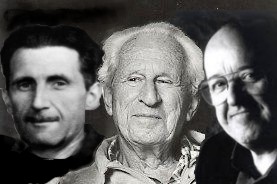When the card is verified, the Zoom store’s robotic arm moves smoothly behind a clear glass panel to a shelf where the particular item is resting. A small pusher will scoot the item onto the arm, which gently transports the item to a nine-inch window located just below the touch screen. A door slides open, and optical technology senses when the customer has reached in to retrieve the item. As soon as the item leaves the window, the card is charged, thereby avoiding the most common frustration with vending machines: a cash loss when goods get jammed.
The editor of a Web site called kioskmarketplace.com, James Bickers, says America has never seen anything like the Zoom stores. “The psychological presence these things have is just amazing. It stops you, this monstrous vending machine that’s got iPods in it. Five years from now, we’ll have seen so many of these things, but right now it’s definitely got a wow factor.”
“Our guests love it,” says the Argent’s Fabiola Price. “It has things they wouldn’t expect and it’s open 24-hours. We love it because we can still offer our guests everything a gift shop would, but without all the overhead costs.”
fromZoom systems website
 Benjamin Hunnicutt
Benjamin Hunnicutt, Robots for leisure.
Powered by
Castpost(36 sec)
Wal-Mart, the nation’s largest private employer, is pushing to create a cheaper, more flexible work force by capping wages, using more part-time workers and scheduling more workers on nights and weekends.
…
But some Wal-Mart workers say the changes are further reducing their already modest incomes and putting a serious strain on their child-rearing and personal lives. Current and former Wal-Mart workers say some managers have insisted that they make themselves available around the clock, and assert that the company is making changes with an eye to forcing out longtime higher-wage workers to make way for lower-wage part-time employees.
…
They need to be doing some of this,” said Charles Grom, an analyst at
J. P. Morgan Chase who covers Wal-Mart. It lets the company schedule employees “when they are generating most of their sales — at lunch, in the evening on the weekends.”
But Sally Wright, 67, an $11-an-hour greeter at the Wal-Mart in Ponca City, Okla., said she quit in August after 22 years with the company when managers pressed her to make herself available to work any time, day or night. She requested staying on the day shift, but her manager reduced her schedule from 32 hours a week to 8 and refused her pleas for more hours, she said “They were trying to get rid of me,” Ms. Wright said. “I think it was to save on health insurance and on the wages.”
…
But because Wal-Mart is such a giant — its $312 billion in sales last year exceeded the sales of the next five biggest retailers combined — its new labor practices may well influence policies more broadly.
from
Wal-Mart to Add Wage Caps and Part-TimersNYT
By STEVEN GREENHOUSE and MICHAEL BARBAROPublished: October 2, 2006







